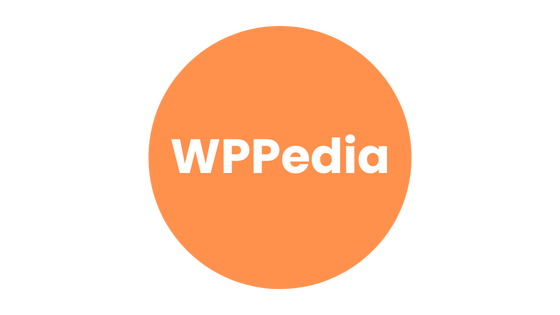Have you ever wondered who keeps the gears of the WordPress universe running smoothly? Enter the WordPress Foundation, an entity with a mission as grand as the internet itself: to democratize publishing through Open Source. It’s a lofty goal, and yet, this Foundation, established in 2010 by Matt Mullenweg, has been pivotal in shaping the digital landscape we navigate daily.
At its heart, the WordPress Foundation isn’t just about maintaining a popular content management system; it’s about ensuring the longevity of a platform that empowers voices globally. Think of it as a guardian, committed to preserving and enhancing WordPress so that it remains accessible and relevant, not just today, but for future generations. This mission, focused on open-source freedom and digital longevity, is more than just code – it’s about fostering an ecosystem where everyone has a voice.
Key Take-aways:
- The WordPress Foundation focuses on democratizing publishing through Open Source, GPL software.
- It ensures the longevity and accessibility of its software projects, like WordPress, for future generations.
- The Foundation also holds responsibility for protecting the WordPress, WordCamp, and related trademarks.
- Emphasizes the importance of open source for community-driven innovation and collaboration.
- Operates as a non-profit organization, primarily funded through donations.
- Owns the WordPress trademark.
1. History and Background of the WordPress Foundation
The WordPress Foundation was established in 2010 by Matt Mullenweg, a name synonymous with WordPress itself. This inception marked a pivotal moment in the digital world, signaling a commitment to ensuring the sustainability of open-source software. WordPress, which started as a modest blogging platform in 2003, has since evolved into a comprehensive Content Management System (CMS) that powers a significant portion of the internet.
This transformation from a simple blogging tool to a versatile platform capable of creating intricate websites reflects the Foundation’s dedication to innovation and adaptability. For a deeper dive into the WordPress journey, visit WordPress Milestones.
2. The Core Philosophy: Open Source and Community
The WordPress Foundation’s success hinges on its core philosophy of open-source development. This approach has been crucial in cultivating a vast and vibrant community of users, developers, and contributors. By embracing open source, WordPress has created an environment of collaboration and innovation, where ideas and code are freely shared.
This philosophy not only fuels the continuous improvement of the platform but also fosters a sense of belonging and contribution among its community. The power of this community-driven model is evident in the platform’s expansive growth and versatility. Learn more about WordPress’s community and open source philosophy here.
3. Governance and Structure
The WordPress Foundation operates as a non-profit organization, emphasizing transparency and community service over profit. Its structure is designed to support the overarching mission of democratizing publishing. As a non-profit, the Foundation relies primarily on donations and contributions from the community to sustain its operations.
This financial model ensures that the focus remains on improving and maintaining the WordPress software for the public good, rather than on generating revenue.
4. Trademark and Intellectual Property Management
The WordPress Foundation’s role extends to the vigilant protection of WordPress, WordCamp, and related trademarks. This responsibility is vital in the open-source community, where the balance between open access and protecting a brand’s identity is delicate.
The ownership of these trademarks by the Foundation ensures that WordPress remains synonymous with quality and reliability, safeguarding its reputation and integrity. For a closer look at how the Foundation manages these trademarks, visit their Trademark Policy.
5. Educational and Public Outreach
A cornerstone of the WordPress Foundation’s mission is its commitment to educating the public about WordPress and open-source software. Through various initiatives and resources, the Foundation aims to elevate technological literacy and encourage community engagement.
This outreach not only spreads knowledge about the benefits and workings of open source but also inspires new generations of developers and users. The Foundation’s educational efforts are crucial in cultivating a knowledgeable and diverse WordPress community.
6. Challenges and Future Outlook
Facing the future, the WordPress Foundation addresses several challenges, including adapting to technological advancements and maintaining a robust contributor base. As the digital landscape evolves, the Foundation must navigate changes in web technology, user expectations, and the broader open-source ecosystem. Looking ahead, potential growth areas include expanding WordPress’s capabilities in emerging web technologies and fostering a more inclusive and diverse community.
The Foundation’s proactive approach in these areas will be crucial to its continued relevance and success. To understand more about the challenges and future prospects of the WordPress Foundation, read their latest updates here.
7. FAQ Section
Q: Who founded WordPress?
WordPress was co-founded by Matt Mullenweg and Mike Little in 2003. For more insights Dive into Who Owns WordPress?
Q: Does WordPress have nonprofit pricing?
Yes, WordPress offers special pricing and plans for nonprofit organizations through some hosting providers.
Q: When was WordPress initially released?
WordPress was initially released on May 27, 2003.
Q: Can I use WordPress logo on my website?
Yes, you can use the WordPress logo on your website, but you must adhere to the WordPress Foundation’s trademark policy.



